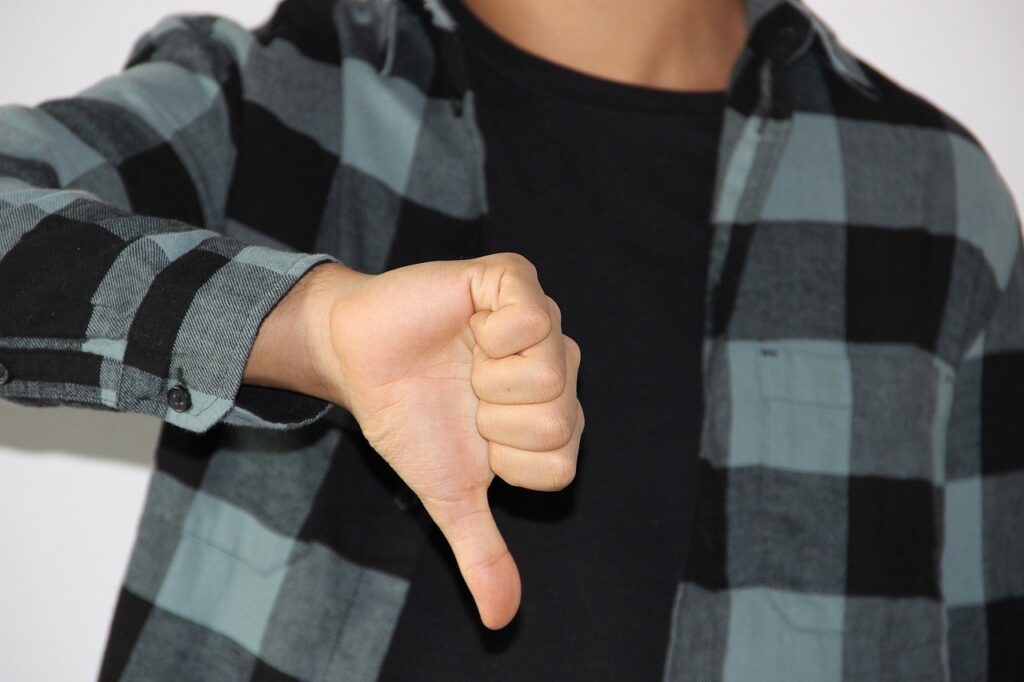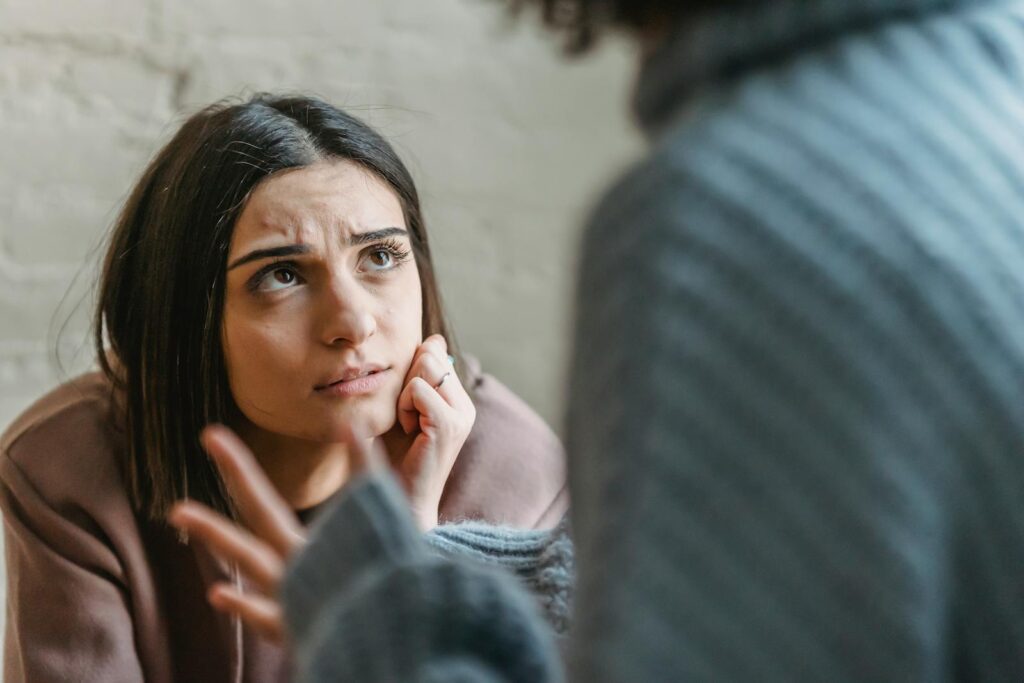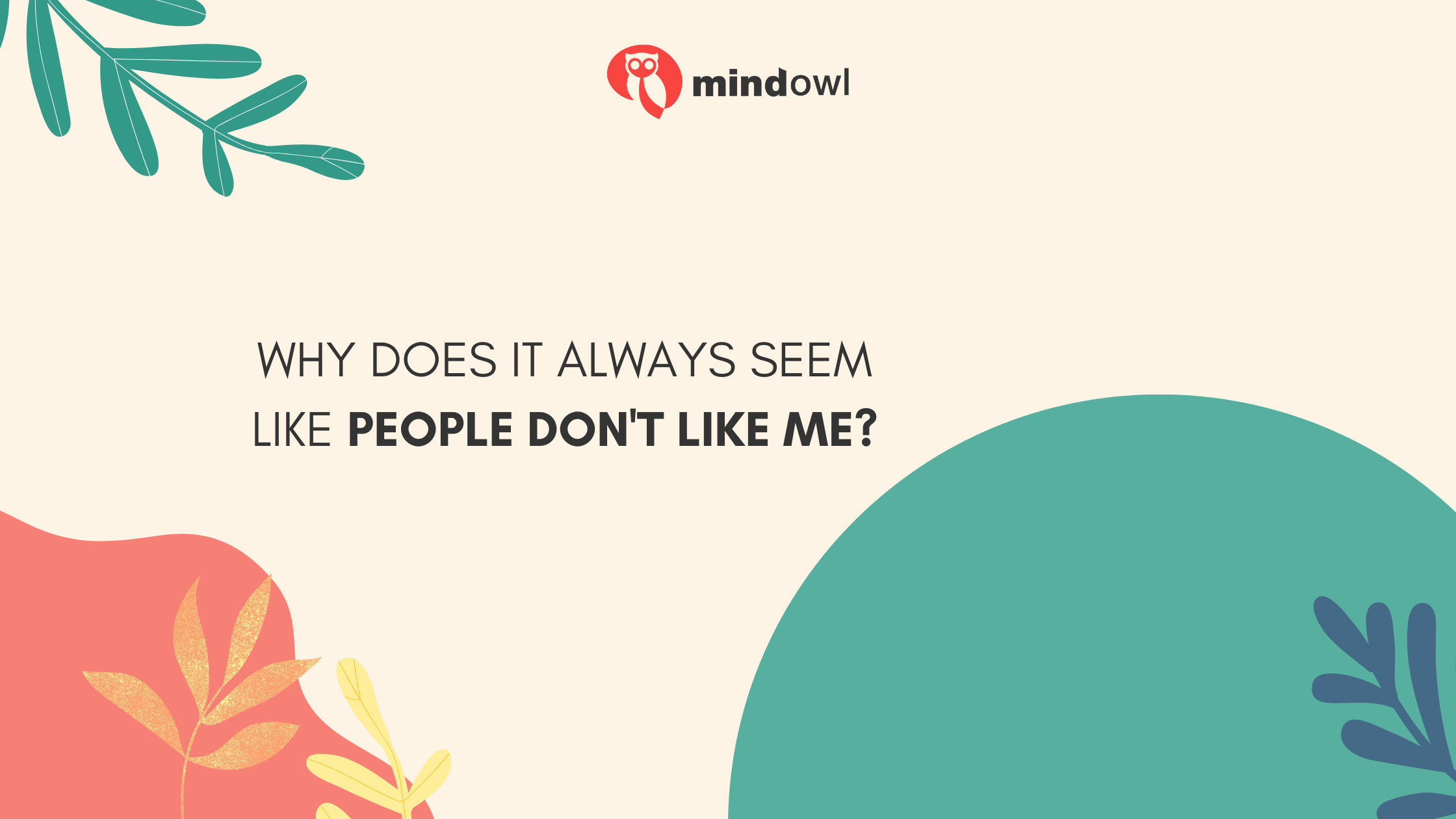Have you ever found yourself wondering, “Why don’t people like me?” It’s a question that might pop up after an awkward social gathering or when feeling left out. You’re not alone in this.
Many of us go through moments where we doubt our likability. Hate, interestingly enough, isn’t just random. It comes from somewhere deep and is tied to emotions like anger or fear.
This blog post explores the different reasons someone may not warm up to you—reasons ranging from jealousy to simple misunderstandings. We’ll also dive into how your behaviour could be pushing others away and what steps you can take to become more appreciated by those around you.
With some reflection and small changes, finding a path towards better connections is possible.
Ready for some insights? Keep reading!
Key Takeaways
- People may not like you due to various reasons like being overly self-critical, showing off, or struggling with shyness.
- Dressing differently and misinterpreted facial expressions can also cause misunderstandings.
- Having quality friends who appreciate you matters more than having lots of acquaintances.
- Negative behaviours such as being intimidating or lacking respect towards others can push people away.
- Improving your likability involves showing genuine interest in others, being respectful, maintaining a positive attitude, and developing good communication skills.
Understanding the Feeling: “Why don’t people like me?”
Feeling unliked can make you feel alone and out of place. It’s a tough spot to be in, wondering if there’s something wrong with how you act or speak. Many people go through this, asking themselves why they’re not more popular or why others don’t seem to enjoy their company.
This feeling causes you to hyperfocus on any signs that others don’t approve of you, while discounting or minimizing the positive interactions you do have. It becomes a self-fulfilling prophecy – you expect rejection, so you look for evidence of it everywhere and start behaving in ways that inadvertently push people away.
However, the root of this feeling frequently has little to do with you as a person. More often, it stems from your own harsh self-judgments and insecurities. People don’t dislike you for no reason – there are usually misinterpretations or misunderstandings involved. Perhaps someone was just distracted or stressed that day, but you took it as a sign they don’t like you. Or your anxiety caused you to act differently than your true self.
The truth is, likability isn’t something you’re born with – it can change based on how you interact with others. You might think that being friendly is enough, but sometimes it’s not just about what you say; it’s also about listening and showing genuine interest in what others have to say. Feeling invisible or like no one cares can be a sign that it’s time to look at your social habits and see where changes might help improve how people perceive you.
Possible Reasons Behind Dislike

You’re overly self-critical:
Harsh self-criticism leads to feelings of unworthiness and not measuring up, pushing people away as you constantly compare yourself unfavorably to others.
You exhibit superficial behavior:
Focusing too much on outward appearances like looks or wealth instead of deeper connections makes it hard for people to see your authentic self.
You’re either too shy or overly outgoing:
Being extremely shy can make you seem disinterested, while being the constant center of attention can overwhelm others and prevent balanced relationships.
You converse excessively about yourself:
Talking only about your own stories and achievements without showing interest in others makes them feel overlooked and prevents strong bonds from forming.
You dress in a way that differs significantly from the norm:
While expressing yourself through fashion is great, dressing very differently from cultural norms can unintentionally push some people away if not balanced with situational awareness.
Your facial expressions are often misinterpreted:
When your facial expressions don’t match your internal feelings, others can misread you as unfriendly or insincere based on their own subjective interpretations.
The Impact of Social Surroundings
Our social surroundings and environments play a major role in shaping the belief that people don’t like us. If we grow up in a family or community where we frequently feel criticized, ignored or outright rejected, it can ingrain the expectation that we are inherently dislikable. Traumatic experiences of bullying, ostracism or abuse in our past can leave deep psychological scars that persist into adulthood. Even in our current social circles, being around people who are judgmental, exclusive or have a propensity to gossip can reinforce feelings of not being accepted.
On the flip side, positive and supportive social surroundings can be incredibly healing for the “why don’t people like me” mindset. Having even just one or two close friends who make us feel truly seen, valued and accepted can counteract years of rejection narratives. Surrounding ourselves with warm, inclusive communities that embrace diversity can slowly chip away at our insecurities. Engaging in group activities like team sports, hobby clubs or group therapy can provide a sense of camaraderie and belonging. While the roots of this feeling may go deep, nurturing social environments can rewrite the story that no one likes us.

Negative Behaviours That Might Drive People Away
Being too intimidating:
Intimidating behaviour, whether subtle or overt, can push people away and harm different types of relationships by making others feel negative towards the intimidating person.
Inability to carry a conversation:
Struggling to communicate effectively due to conditions like avoidant personality disorder, insecurity, or ableism can lead to behaviours that unintentionally drive others away.
Socializing in the wrong places:
Engaging in activities or environments that make you feel uncomfortable or disrespected can promote negative interactions that push people away instead of positive, uplifting connections.
Lack of respect towards others:
Not respecting others by acting intolerant or prejudiced demonstrates negative personality traits that significantly damage interpersonal relationships and a sense of belonging.
Acting intolerant and prejudiced:
Intolerance and prejudice breed negative judgments towards others without truly knowing them, resulting in discriminatory beliefs that lead to adverse attitudes and behaviours pushing certain groups away.
How to Improve Your Likability
Improving your likability is possible by understanding and applying practical tips. Consider these strategies:
- Pay attention to others – Show sincere interest in people around you and actively listen to them. Engaging in meaningful conversations and demonstrating empathy can make you more likable.
- Be respectful and considerate – Treat others with kindness and respect, regardless of their background or beliefs. Being courteous and mindful of others’ feelings can enhance your likability.
- Maintain a positive attitude – Cultivate an optimistic outlook on life and strive to radiate positivity. Your upbeat demeanour can attract people towards you, making you more likeable.
- Showcase authenticity – Embrace your true self and avoid pretending to be someone you’re not. People are drawn to authenticity, so being genuine can improve your likability.
- Practice self-reflection – Assess your behaviour and interactions with others to identify areas for improvement. Being self-aware allows you to work on aspects that may hinder your likability.
- Develop good communication skills – Effectively express yourself while also being receptive to others’ viewpoints. Clear communication fosters better connections with people, boosting your overall likability.
Remember that implementing these approaches can gradually enhance how people perceive and appreciate you without drastically changing who you are.
Conclusion
Understanding why people don’t like you is essential for improving relationships and boosting self-worth. Hate often stems from hurt, frustration, or misunderstanding, so it’s important not to take it personally.
Focus on nurturing quality connections with those who appreciate you and work on negative behaviours that may push others away. Remember, not everyone will like you, and that’s okay – what matters most is cultivating genuine connections with the right people for a happier life.
FAQs
1. Why do I feel like everyone hates me wherever I go?
Feeling like everyone hates you, especially when meeting new people or surrounded by a crowd, might stem from low self-esteem or the fear of not being liked. Remember, it’s common to feel this way at times—everyone has moments of doubt.
2. Could gossip be a reason why people don’t seem to like me?
Absolutely, gossip can damage reputations and relationships. If there’s chatter behind your back, it could push people away before they even get to know you properly. Try not to let gossip define who you are; focus on showing your real self.
3. What should I do if I think my friends don’t like me anymore?
Take a deep breath and consider having an honest chat with them. Sometimes misunderstandings or feeling left out can make us think our friends dislike us when they actually don’t. Communication is key—let them know how you’re feeling.
4. How can listening more and talking less help people like me?
Listening shows that you value others’ opinions and feelings, making them feel respected and connected with you—it’s a simple yet effective way to improve relationships and make friends who genuinely enjoy your company.
5. Is jealousy ever a reason why someone might not want to be around me?
Yes, sometimes people may be jealous of what you have achieved or possess, which makes them keep their distance because it makes them feel inadequate in comparison—remember though; this is about their insecurities, not something wrong with you.
6. How can giving people the benefit of the doubt help in making real friends?
Assuming the best in others can lead to stronger connections—you’ll find that when we look past minor faults and focus on good intentions instead; friendships become deeper and more genuine as trust builds over time.
MindOwl Founder – My own struggles in life have led me to this path of understanding the human condition. I graduated with a bachelor’s degree in philosophy before completing a master’s degree in psychology at Regent’s University London. I then completed a postgraduate diploma in philosophical counselling before being trained in ACT (Acceptance and commitment therapy).
I’ve spent the last eight years studying the encounter of meditative practices with modern psychology.


